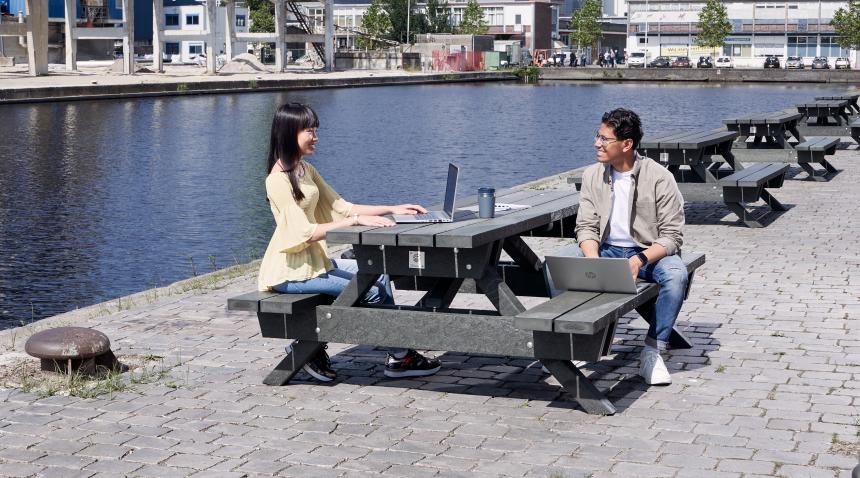
Dual career families and working partners
As a couple or family, relocating to the Netherlands for one person’s work has many implications. If both of you were previously working, you are likely to have thought long and hard about the move, especially if it means that one of you has had to give up their job. While some accompanying partners may take advantage of the situation and take a break from their career, take up studying, or focus on family, others will want or need to find work. Luckily, there are many career opportunities for internationals in The Hague and nearby Dutch cities, and the Netherlands has residence and work permits for family members.
A Home for Internationals and English Speakers
As internationals moving to The Hague for work, you are not alone. More than half of the population in Rotterdam, Amsterdam and The Hague has a migration background, and The Hague is very well known for its diverse international communities. Speaking English can make it much easier to settle in. Almost everyone in the area speaks English, and it is common for non-Dutch speakers to find work or education here.
Finding Work or Education
Because of this, there are many jobs and study options in English. And the presence of the many international organisations here means speakers of other languages are often sought after, too. In short, the job market for non-Dutch speakers in The Hague region is fairly large, and there are even more opportunities for internationals available in nearby Amsterdam, Delft, Leiden, and Rotterdam.
This can also be a useful opportunity for education and training. All Dutch universities offer English-language study options, especially at master’s level. However, most programmes ask for certificates to show a certain level of English fluency. Many companies also offer internships and traineeships for English speakers. These are usually paid, though not often very highly.
Schools and Daycare Options for Non-Dutch-Speaking Children
As working parents, it’s relatively easy to find high-quality childcare, education, and a good environment for your children in the Netherlands. There are many daycare centres around The Hague. It’s common in the Netherlands to send children to nursery at a comparatively young age (often three months), so there are plenty of childcare options for babies and toddlers.
School usually starts at age four. With so many international communities in The Hague region, there are a lot of options for international education, including international and bilingual schools. Many of these have a very good reputation, though they can be expensive.
On the other hand, it is also common for international children to attend Dutch-language schools. They are free, and many offer classes specifically to help non-Dutch-speaking children learn the language. If you are planning to stay for a long time, this can be a good way to help your children feel at home in the Netherlands.
Changes to Taxes and Benefits
If you are still deciding if both of you will work or study, make sure you check how this would affect your financial situation. In a household with two working partners, you may see some differences to your taxes and benefits compared to single-earner families. There are some advantages, such as the recent changes to tax credits for dual-income parents. If both parents are working or in training, you may also be able to claim childcare benefit to help pay for childcare.
Learn more about finding a job in the Netherlands, including tips on how to tailor your CV to the Dutch market; learn about studying in The Hague; and read about family migrant permits.



